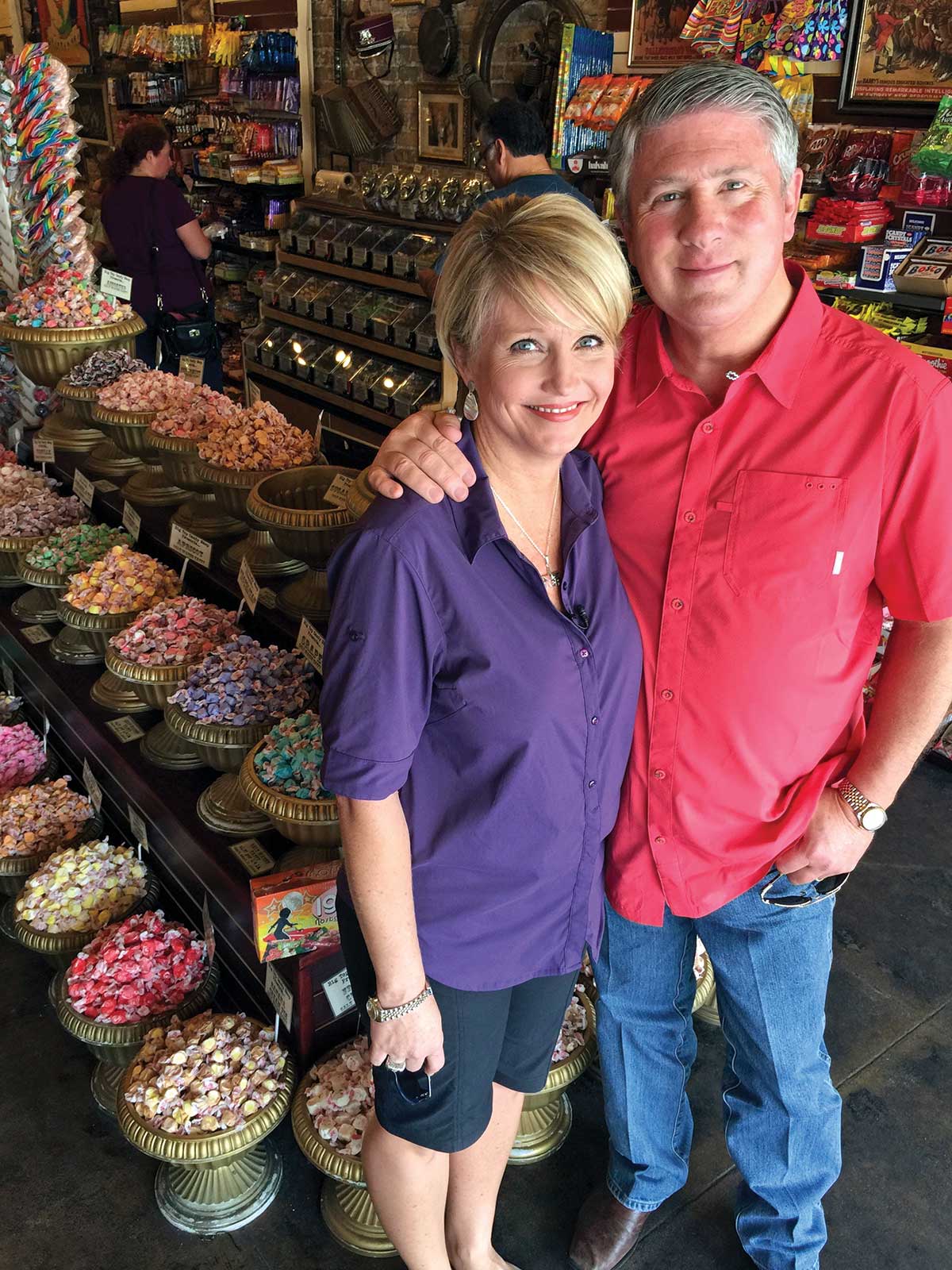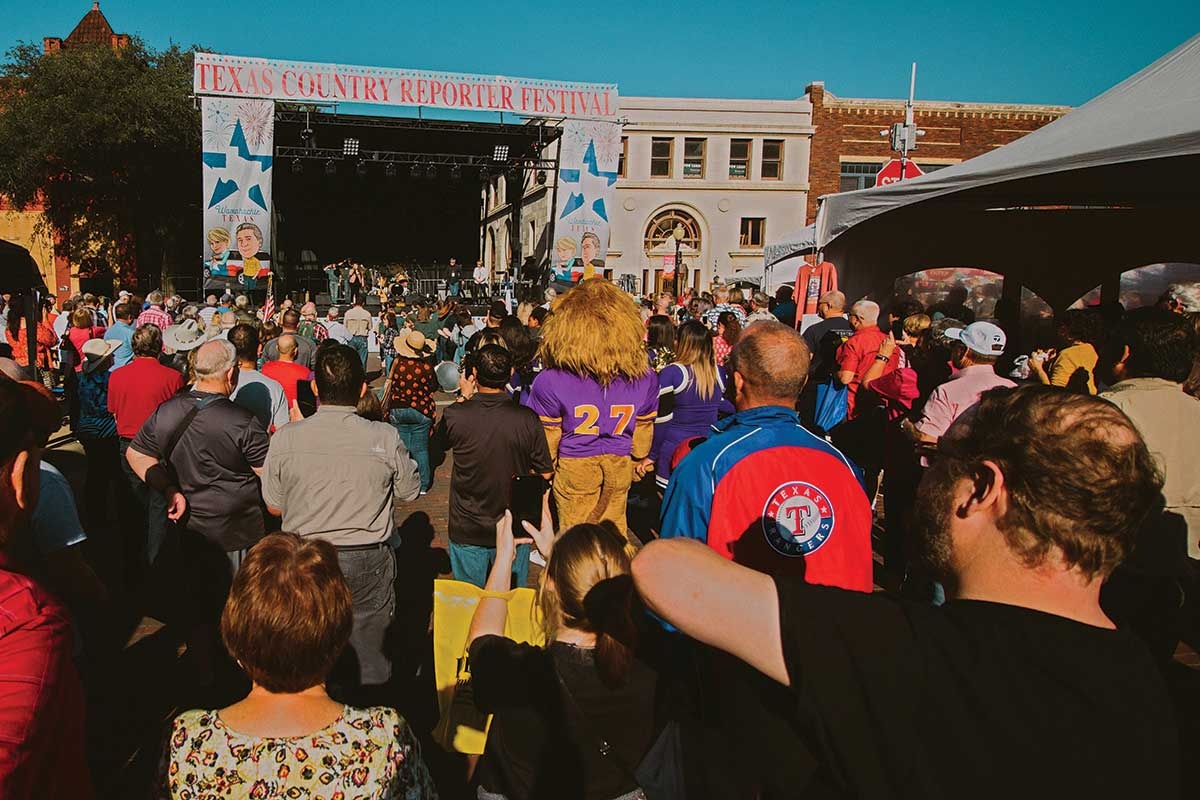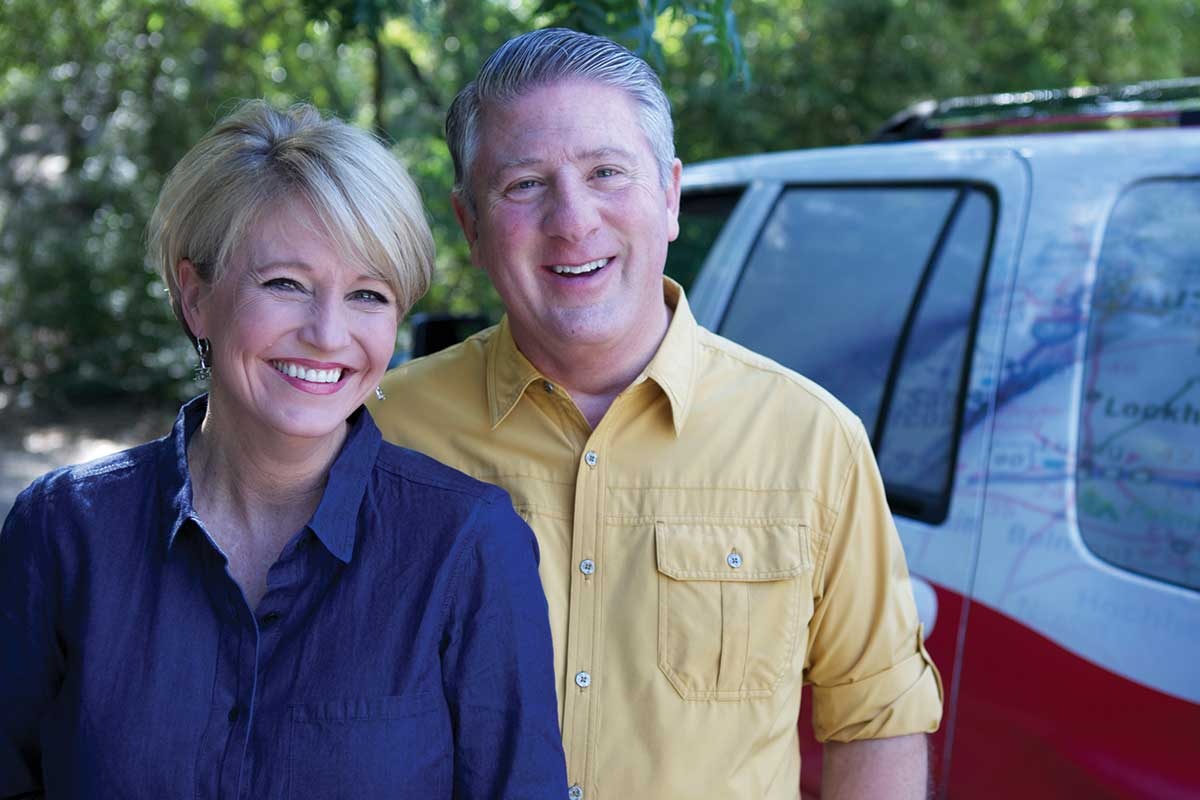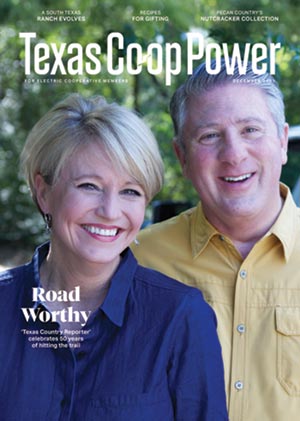Back in 1972, Bob Phillips took on an extra assignment as a news reporter for KDFW-TV in Dallas. He became the host of a new program called 4 Country Reporter, going out into the Texas countryside to find interesting characters who told him their stories.
In 2002, Phillips even interviewed me and photographer Laurence Parent for our book, Big Bend National Park. Naturally, he conducted the interview halfway up the park’s Lost Mine Trail.
Nearly 50 years and more than 3 million miles after he first hit the road, Phillips is still traveling around the state as host of Texas Country Reporter, talking to folks and sharing their stories. He’s a juggernaut now, with a production company and a show that airs on 23 affiliates across Texas as well as the nationwide RFD-TV cable channel; a YouTube channel; A Texas Tribute, a touring presentation backed by a live symphony; and the TCR Festival in Waxahachie every October. For the past seven years, partner Kelli Phillips has been riding shotgun. Yes, they are married.
I caught up with Bob and Kelli at their Dallas home during a break in the show’s 50th season.
Joe Nick Patoski: Real important question: How old were you when you started to drive?
Bob Phillips: I spent a lot of weekends and a lot of summers up on my Aunt Lena’s farm in Grayson County. There was an old pickup out there that I could drive on the farm probably starting when I was about 9 years old. I couldn’t go out on the road until I got my driver’s license when I was 15.
JNP: What was the trigger to get into television?
BP: A guy named Eddie Barker who was both news director and the main anchor on the CBS affiliate in Dallas came to talk to my class—to my journalism class, when I was a first-semester freshman in college. This guy came and started telling stories. He was the first person to announce that John Kennedy had been killed in Dallas. He was five minutes ahead of Walter Cronkite. This was the guy that corralled Marina Oswald and did the first interview with her. He was a legend. I was mesmerized. As he was walking out of my class, I stopped him and asked him for his business card. He gave it to me and said, “What are you going to do with this?”
I said, “I’m going to ask you for a job.” He gave me the greatest encouragement because he said, “You do just that.” I gave him 30 minutes to get back to the office, and then I called him. He had me come in for an interview the next morning, and he hired me.

Dan Stricklin | Phillips Productions
JNP: When did you get into the idea of driving around looking for characters who tell good stories?
BP: I rode around with my dad a lot when I was a really little kid, and he always had a fishing pole and a set of dominoes. He said, “I never know when I’m going to see a place where I want to drop a line, and I never know when I’m going to meet three other guys who want to sit down and play some 42.”
After I had started working, I’m watching the CBS Evening News With Walter Cronkite, and there’s a guy on there who’s making a living doing what my dad did. It was Charles Kuralt, and I thought, “Oh, my gosh, my dad just did this for fun. That guy gets paid to do it.” It looked like all Charles Kuralt did was drive around and talk to people who were playing dominoes and fishing and stuff.
I knew I had to put my own spin on it, so I went back to Eddie Barker and said, “OK, look. You know that Charles Kuralt guy that travels all over America? We can do the very same thing except we’ll just travel all over Texas.” He let me give it a try as a one-time-only deal. I did a few features on the news, and they kind of liked them. I clearly did not know what I was doing, but I cobbled them together. The audience response was good enough that they kept saying, “All right, do another one.” Here we are at 50 years, still doing another one.
JNP: OK, honestly, the TV reporter going out on the road looking for stories like this was not a new concept. Others had programs like this. You had traction. Why do you think you resonated and the others didn’t?
BP: I was talking to people who were just like my dad. In the very beginning, somebody was coaching me along and said, “When you’re on camera, picture somebody that you love talking to.” Well, that was my dad. To this day, when I look into the barrel of the lens, I’m looking at my dad’s face.
Every time, I thought about doing something else because you don’t make any money in television news. I worked forever for two bucks an hour, but you’re having a good time. Every now and then I thought, “Well, as I get older, I got to go find a real job.” Then I would think, “But I love this so much.” It also helps when people walk up to you almost every day of your life and say, “You must have the greatest job in the world.” You start believing it when enough people say it to you.
Kelli Phillips: I also think it has something to do with the fact that when we go on stories, we don’t have a preconceived idea of what this story is going to be. We honestly go in there with no questions in advance. We just sit down and talk with these people, and we develop a relationship. You see that transpire on the air.
BP: Yeah, she’s right. I’ve never gone in with a list of questions for people. Frankly, I don’t even think much about it ahead of time. We just sit down and have one of those, “Hey, how’s it going?” chats and try to take people on a little journey to get them to tell us their life story and to forget there’s cameras.
KP: And most of the time, they do.
BP: Yeah, for some reason, that’s something we were pretty successful at. If you’ve got one of those huge crews like some shows do now, they’ve got a crew of 40 or 50 people on the set shooting these things. I always think, “How do they get anything done?” We go out with two or three or maybe four people, max, and the camera kind of disappears.

The Texas Country Reporter Festival in Waxahachie celebrated 25 years of bringing arts and music fans together in 2021.
Dan Stricklin | Phillips Productions
JNP: Bob, on that hike up Lost Mine Trail, I remember I’d gotten in hot water with Mike Levy, the publisher at Texas Monthly, and that eventually led to my departure from the magazine. But you actually had the most comforting words at the time when you said getting fired from Channel 4 was the best thing that ever happened to you.
BP: Well, yeah, it was because that’s what propelled us. That made me. I’d done that show for 14 years. They didn’t actually fire me; they just canceled my show. But it was like being fired because I wasn’t going to stay there if they weren’t going to let me do my show. That made me pull my britches up and say, “OK, you’ve got to do something about this,” and that’s when we syndicated the show all over the state and when I started producing it myself instead of through a television station. The show had been popular in Dallas-Fort Worth, but then it …
KP: Exploded.
BP: Exploded all over the state. That was a good thing.


